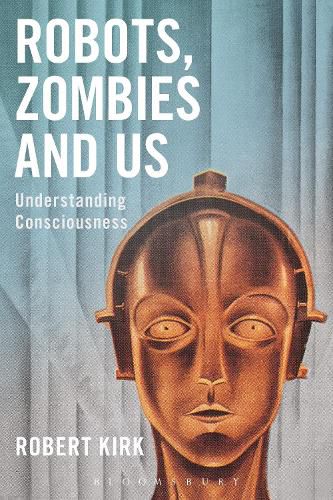Readings Newsletter
Become a Readings Member to make your shopping experience even easier.
Sign in or sign up for free!
You’re not far away from qualifying for FREE standard shipping within Australia
You’ve qualified for FREE standard shipping within Australia
The cart is loading…






Could robots be genuinely intelligent? Could they be conscious? Could there be zombies? Prompted by these questions Robert Kirk introduces the main problems of consciousness and sets out a new approach to solving them.
He starts by discussing behaviourism, Turing’s test of intelligence and Searle’s famous Chinese Room argument, and goes on to examine dualism - the idea that consciousness requires something beyond the physical - together with its opposite, physicalism. Probing the idea of zombies, he concludes they are logically impossible. Having presented the central problems, he sketches his solution: a version of functionalism, according to which consciousness consists in the performance of functions.
While there is wide agreement among philosophers about what the main problems of consciousness are, there is little agreement on how to go about solving them. With this powerful case for his version of functionalism, Kirk offers an engaging introduction to both the problems and a possible solution.
$9.00 standard shipping within Australia
FREE standard shipping within Australia for orders over $100.00
Express & International shipping calculated at checkout
Could robots be genuinely intelligent? Could they be conscious? Could there be zombies? Prompted by these questions Robert Kirk introduces the main problems of consciousness and sets out a new approach to solving them.
He starts by discussing behaviourism, Turing’s test of intelligence and Searle’s famous Chinese Room argument, and goes on to examine dualism - the idea that consciousness requires something beyond the physical - together with its opposite, physicalism. Probing the idea of zombies, he concludes they are logically impossible. Having presented the central problems, he sketches his solution: a version of functionalism, according to which consciousness consists in the performance of functions.
While there is wide agreement among philosophers about what the main problems of consciousness are, there is little agreement on how to go about solving them. With this powerful case for his version of functionalism, Kirk offers an engaging introduction to both the problems and a possible solution.